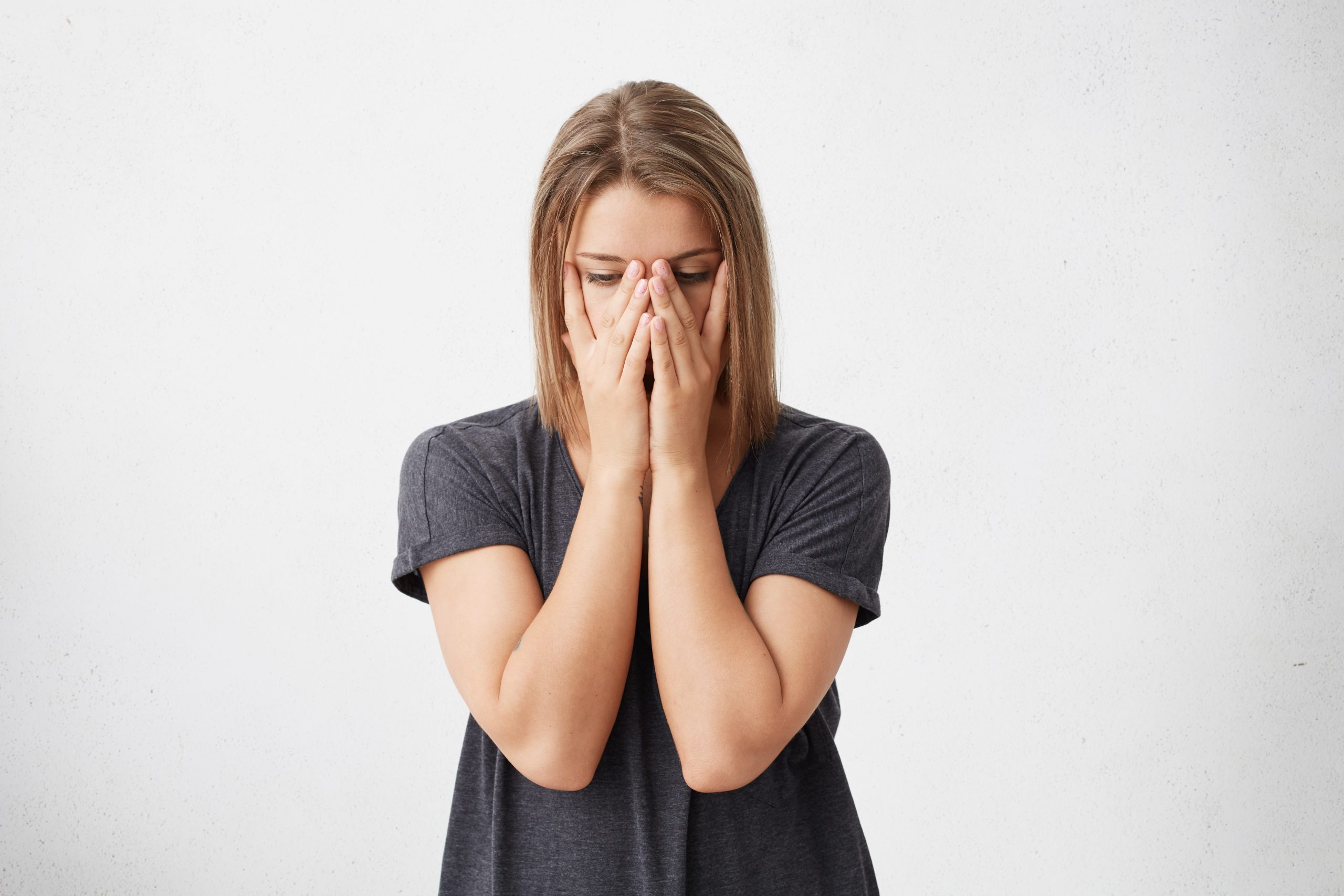Updated on February 14, 2024
Medically reviewed by Nicholas R. Metrus, MD
Multiple sclerosis (MS) is an unpredictable disease that affects everyone differently. Symptoms vary in intensity—some people are mildly affected, but others experience severe symptoms that lead to difficulty walking, eating, and talking.
While anyone can be diagnosed with MS, it is more prevalent in females than in males. All people typically experience similar MS symptoms, but MS also can impact menstruation, pregnancy, and menopause in females.
Read on to learn more about the common symptoms of MS in all genders, as well as how the condition affects females in particular.
A Note on Gender and Sex Terminology: Verywell Health acknowledges that sex and gender are related concepts, but they are not the same. To reflect our sources accurately, this article uses terms like “female,” “male,” “woman,” and “man” as the sources use them.
Early Signs and Symptoms of MS in All Genders
Multiple sclerosis (MS) is a chronic, progressive disease that affects the central nervous system. Early signs and symptoms of MS include vision problems, trouble walking, and numbness/tingling in the limbs.

Common early signs and symptoms of MS include:1
- Bladder issues
- Bowel problems
- Difficulty focusing/concentrating
- Dizziness/lack of coordination
- Fatigue
- Muscle spasms
- Pain throughout the body
- Sexual problems
- Speech problems
- Tingling and numbness
- Vision problems
- Weakness
For some people, the first signs of MS appear during their first episode of neurological symptoms that do not seem to have another cause. These symptoms last at least 24 hours and are caused by inflammation or demyelination (loss of myelin) in the central nervous system. This is referred to as clinically isolated syndrome (CIS).2
A CIS episode could include:
- Lhermitte’s sign: Tingling or feeling of shock going down the back and neck, caused by demyelination on the spinal cord.
- Optic neuritis: Inflammation of the optic nerve can cause headaches, eye pain, and blurred vision.
- Transverse myelitis: Inflammation of the spine can cause symptoms such as bladder dysfunction, numbness, tingling, weakness, and/or difficulty walking.
A monofocal episode of CIS means that a person experiences a single neurologic symptom, such as optic neuritis. A multifocal episode means that a person experiences more than one neurologic symptom, such as optic neuritis accompanied by numbness or weakness in the arms and legs.
Not everyone who experiences CIS will be diagnosed with MS. Magnetic resonance imaging (MRI) is often used as a diagnostic imaging tool to check for physical signs of MS on the brain and spinal cord.
Common MS Symptoms
MS can cause a number of symptoms, but most people do not experience all of them. The signs and symptoms of MS are different for everybody, and your experience and symptoms may be different from another person who also has MS.

Common MS symptoms include tingling and numbness, muscle spasms and pain, fatigue and weakness, balance problems and dizziness, bladder and bowel dysfunction, cognitive problems, sexual dysfunction, and changes in emotional health.1
Tingling and Numbness
Numbness and tingling are often one of the first signs of MS a person experiences. You may notice you feel fewer sensations when you toss something with your hands or notice one leg feels a little different from the other. You may feel like your limbs are “asleep” with a tingling/pins and needles sensation.
This occurs because MS affects the protective coating on nerves in the brain and spinal cord (demyelination). This can cause numbness in the arms, legs, face, and fingers.1
Muscle Spasms and Pain
Pain in MS can be acute or chronic (lasting three months or more). It can be caused by nerve damage, or come as a result of other MS symptoms. Involuntary muscle spasms and stiffness are common causes of MS-related pain. You may also feel painful sensations throughout your arms, legs, feet, and neck. Many people with MS experience what is known as the “MS hug”—a feeling of tightness in the chest caused by spastic nerves.1
MS pain is often categorized as:1
- Neuropathic pain: Caused directly by nerve damage in the brain and spinal cord. Neuropathic pain can range from minor to severe, causing minor irritations (e.g., constant itching) or sharp, burning pain.
- Musculoskeletal pain: Pain in the joints and muscles is often a result of the stress that MS places on the body. Difficulties with balance, weakness, and fatigue can add strain to your body that affects your posture or gait, for example. This can lead to pain in joints, ligaments, and muscles.
Fatigue and Weakness
Fatigue is more than just feeling tired after a bad night’s sleep. MS-related fatigue is a feeling of overwhelming exhaustion that can be hard to shake. People with MS may experience intermittent fatigue, recurrent fatigue, or chronic fatigue. Different factors can cause fatigue if you have MS:
- Primary fatigue: Caused by damage in the brain and spinal cord, primary fatigue may be tied to the number of lesions in the brain and inflammation in the body.
- Secondary fatigue: Living with MS can affect every aspect of your life. Pain (whether acute or chronic) and the emotional toll of living with MS can lead to fatigue.
Weakness can develop due to the demyelination of nerves in the brain and spinal cord, or from muscles shrinking from lack of use, due to loss of balance and mobility.1
Balance Problems and Dizziness
Problems with balance and dizziness are common in MS. Many MS symptoms can affect balance, including muscle weakness, stiffness and spasms, difficulty with coordination, and tremors. Many people with MS report feeling dizzy, particularly after standing up.1
Bladder and Bowel Dysfunction
Bladder and bowel troubles are other common symptoms of MS. You may feel like you need to urinate frequently, struggle to hold in urine, or have difficulty urinating (bladder retention).
While some variation in your daily bowel movements is normal, MS may lead to constipation and make it difficult to have a bowel movement.1
Cognitive Problems
Many people with MS experience problems with memory and thinking (cognitive problems). You may find that you have trouble focusing, or have a shortened attention span or struggle to stay organized. Experiencing depression and/or anxiety is also common.1
Sexual Dysfunction
Changes in sexual function (arousal, orgasms) are common. Arousal begins in the central nervous system, and damage to nerve pathways may become damaged as a result of MS. Sexual dysfunction may also be a result of weakness, fatigue, or muscle spasms. Emotional symptoms can also have an impact on sexual desire.1
Changes in Emotional Health
Living with a chronic, progressive disease like MS can tremendously impact your emotional health and well-being. The stresses of the disease can cause mood swings, irritability, and persistent sadness. Research suggests that over 35% of people with MS have been diagnosed with major depression, and nearly 34% have experienced anxiety.3
Video: “Rehabilitation of the patients with Multiple Sclerosis”
MULTIPLE SCLEROSIS. EXERCISES FOR STRETCHING AND IMPROVING BODY FLEXIBILITY AND JOINT MOBILITY, REDUCING TONE
For additional information about Rehabilitation of the patients with Multiple Sclerosis you can watch a video demonstrating exercises and rehabilitation recommendations.
Less Common MS Symptoms
MS symptoms can vary from person to person. You may also experience different symptoms during relapses, or have certain symptoms that come and go. Less common symptoms of MS include:1
- Breathing problems
- Hearing loss
- Loss of taste
- Seizures
- Speech problems
- Swallowing difficulties
- Tremors
MULTIPLE SCLEROSIS. EXERCISES TO STRENGTHEN THE MUSCULOSKELETAL AND MUSCULAR SYSTEM, ENDURANCE
Secondary Symptoms
Secondary symptoms of MS are not directly related to MS itself. Instead, they are complications that may occur due to the primary symptoms of the disease. Common secondary symptoms include:1
- Decreased bone density
- Muscle weakness/loss of muscle tone
- Poor posture
- Pressure sores (caused by immobility)
- Shallow breathing
One of the goals of MS treatment is reducing primary symptoms to prevent the development of secondary symptoms. If you do develop secondary symptoms, they are generally treatable.
MULTIPLE SCLEROSIS. EXERCISES TO IMPROVE COORDINATION, BALANCE AND GAIT
MS Symptoms in Women
Females are more likely to be diagnosed with MS than males; Iin fact, MS is two to three times more common in females.4 Researchers are still working to determine the reasons for this, but hormones may play a role in why females are more susceptible to the disease.5

Menstrual Problems
Females with MS often experience more MS symptoms around the time they are going through premenstrual syndrome (PMS) and during their period. Before you get your period, sex hormones (estrogen and progesterone) decline, which can trigger symptoms of both PMS and MS. This suggests that hormones not only regulate your menstrual cycle but may play a role in MS activity in the body.
If you have irregular cycles, MS may be the cause. Research shows that an MS diagnosis is linked to irregular periods in some people.6
Pregnancy-Related Symptoms
Multiple sclerosis does not seem to reduce the chances of getting pregnant and carrying a pregnancy to term. Research shows that MS relapses decreased during pregnancy and increased back up to pre-pregnancy rates by three months postpartum.78
If you have MS and are pregnant or planning on getting pregnant, talk with your healthcare provider about treatment options and symptom management that are safe for you and the fetus.
Menopause
In their late 40s or 50s, females may experience a worsening of your MS symptoms after menopause. During menopause, estrogen levels drop dramatically. One study found that MS progresses more quickly after menopause.9 This may be due to the decline in estrogen levels in the body.
Symptoms of both menopause and MS are similar, including:
- Bladder problems
- Decline in sexual arousal
- Depression
- Fatigue
- Mood swings
- Trouble concentrating
If you’re not sure if your symptoms are related to MS or menopause, talk to your healthcare provider. They can run bloodwork to check your estrogen levels and determine if you are in menopause or post-menopause.
MULTIPLE SCLEROSIS. STRETCHING AND WORKING WITH A MASSAGE ROLLER. ADVANCED STAGE OF REHABILITATION
MS Symptoms in Men
Though MS is three times more common in females, males are affected, too. They are more likely to have a progressive form of MS and tend to have different symptoms and disability progression throughout the course of the disease.10

Men Are More Likely to Develop Primary Progressive MS
Males are more likely to be diagnosed with primary progressive MS (PPMS) than females. This type of MS is associated with worsening neurological functioning from the onset of symptoms and no relapses or remissions.
The average onset of PPMS is 10 years later than in relapsing MS. People with PPMS experience more problems with balance and tend to require more assistance with everyday activities.11
MS May Progress Faster in Men
For reasons that are not yet fully understood, males with MS tend to experience a faster progression of the disease than females. This may be due in part to early signs of MS in males being missed or overlooked, or because of delays in seeking help for health issues.12
Research shows that males have a more rapid progression of disability, reach disability milestones more quickly than females, and often have a more malignant form of the disease with poorer recovery after initial disease relapse.13
Neurodegeneration
MS is a neurodegenerative disease, meaning it causes damage (neurodegeneration) to grey and white matter in the brain and spinal cord. In imaging tests (e.g., MRI), patches—or lesions—of demyelination can be detected in the brain and spinal cord. MS also causes axonal damage (tearing of nerve fibers) in the cells of the brain and spinal cord. As a result of these changes, MS is associated with brain atrophy and long-term disability.14
Diagnosing MS
There is no single test to diagnose MS. If you have symptoms of MS, talk to your healthcare provider. They will give you a physical examination, neurological examination, and ask about your medical history. They may also order tests to provide an accurate diagnosis.

Tests and Procedures
Doctors use different tests to confirm a diagnosis of MS. Your doctor may recommend the following tests:15
- Magnetic resonance imaging (MRI): An MRI is an imaging test that generates images of the organs and other soft tissues in the body. Your doctor will look at MRI-produced images of your brain and spinal cord to look for lesions associated with MS.
- Evoked potential tests: These tests involve placing electrodes on the skin to send painless electrical signals throughout the body. These measure how quickly and accurately nerves send signals to the brain in response to the stimulation.
- Lumbar puncture: Commonly referred to as a “spinal tap,” a lumbar puncture involves taking a sample of cerebrospinal fluid to examine it for markers of MS, such as proteins and inflammatory cells associated with the disease. Lumbar punctures are also used to rule out other conditions that have similar symptoms as MS.
Misdiagnosis
Despite significant advancements in tools and technologies used to diagnose MS, misdiagnosis can still occur. Research shows that up to 30% of individuals incorrectly diagnosed with MS were eventually diagnosed with other diseases.16 This may be because many conditions share similar symptoms to MS, such as fibromyalgia, functional neurological disorders, migraine, and other inflammatory and metabolic conditions.
By Lindsay Curtis
Curtis is a writer with over 20 years of experience focused on mental health, sexual health, cancer care, and spinal health.
Summary
Multiple sclerosis (MS) is a chronic, progressive disease that affects the central nervous system. The disease is unpredictable—some people may be only mildly affected, and others may be impacted significantly, losing the ability to see clearly, speak, walk, or live independently.
Early signs and symptoms of MS include vision problems, trouble walking, and numbness/tingling in the limbs. Treatments such as medications can help slow the progression of the disease and reduce symptoms.
While all people share many of the same signs and symptoms of MS, MS can affect menstruation, menopause, and pregnancy in females. Males also experience faster disease progression and neurodegeneration.
Conclusion
Living with MS can be challenging, but with the right treatments and support, many people with the disease are able to live fulfilling lives. It’s important to follow your treatment plan and take your medications as prescribed. Making lifestyle changes and getting plenty of support from your family and healthcare providers can help you continue to live independently and help you support your health, emotional wellness, and quality of life.

Check out the demo version of our sets of exercises for Multiple Sclerosis on YouTube
You can find more information about Multiple Sclerosis in our Blog.
Our website presents the following sets of exercises for the rehabilitation of the patients with Multiple Sclerosis:
-
MULTIPLE SCLEROSIS. EXERCISES FOR STRETCHING AND IMPROVING BODY FLEXIBILITY AND JOINT MOBILITY, REDUCING TONE
-
MULTIPLE SCLEROSIS. EXERCISES TO STRENGTHEN THE MUSCULOSKELETAL AND MUSCULAR SYSTEM, ENDURANCE
-
MULTIPLE SCLEROSIS. EXERCISES TO IMPROVE COORDINATION, BALANCE AND GAIT
-
MULTIPLE SCLEROSIS. STRETCHING AND WORKING WITH A MASSAGE ROLLER. ADVANCED STAGE OF REHABILITATION
Sources
https://www.verywellhealth.com/signs-of-ms-in-women-vs-men-5213320
- National Multiple Sclerosis Society. Signs and symptoms of MS.
- National Multiple Sclerosis Society. Clinically isolated syndrome (CIS).
- Boeschoten RE, Braamse AMJ, Beekman ATF, et al. Prevalence of depression and anxiety in multiple sclerosis: a systematic review and meta-analysis. J Neurol Sci. 2017;372:331-341. doi:10.1016/j.jns.2016.11.067
- Harbo HF, Gold R, Tintoré M. Sex and gender issues in multiple sclerosis. Ther Adv Neurol Disord. 2013;6(4):237-248. doi:10.1177/1756285613488434
- National Multiple Sclerosis Society. Who gets MS? (Epidemiology)
- Mirmosayyeb O, Badihian S, Manouchehri N, et al. The interplay of multiple sclerosis and menstrual cycle: which one affects the other one?. Mult Scler Relat Disord. 2018;21:46-50. doi:10.1016/j.msard.2018.01.020
- Vukusic S, Hutchinson M, Hours M, et al. Pregnancy and multiple sclerosis (the PRIMS study): clinical predictors of post-partum relapse. Brain. 2004;127(6):1353-1360. doi:10.1093/brain/awh152
- Varytė G, Zakarevičienė J, Ramašauskaitė D, Laužikienė D, Arlauskienė A. Pregnancy and multiple sclerosis: an update on the disease-modifying treatment strategy and a review of pregnancy’s impact on disease activity. Medicina (Kaunas). 2020;56(2):49. doi:10.3390/medicina56020049
- Bove R, Healy BC, Musallam A, Glanz BI, De Jager PL, Chitnis T. Exploration of changes in disability after menopause in a longitudinal multiple sclerosis cohort. Mult Scler. 2016;22(7):935-943. doi:10.1177/1352458515606211
- Practical Neurology. Men with multiple sclerosis.
- National Multiple Sclerosis Society. Primary progressive MS.
- Eccles A. Delayed diagnosis of multiple sclerosis in males: may account for and dispel common understandings of different MS ‘types‘. Br J Gen Pract. 2019;69(680):148-149. doi:10.3399/bjgp19X701729
- Ribbons KA, McElduff P, Boz C, et al. Male sex is independently associated with faster disability accumulation in relapse-onset MS but not in primary progressive MS. PLoS One. 2015;10(6):e0122686. doi:10.1371/journal.pone.0122686
- Correale J, Marrodan M, Ysrraelit MC. Mechanisms of neurodegeneration and axonal dysfunction in progressive multiple sclerosis. Biomedicines. 2019;7(1):14. doi:10.3390/biomedicines7010014
- National Institute of Neurological Disorders and Stroke. Multiple sclerosis: hope through research.
- Gaitán MI, Correale J. Multiple sclerosis misdiagnosis: a persistent problem to solve. Front Neurol. 2019;10:466. doi:10.3389/fneur.2019.00466
- Bove R, Musallam A, Healy BC, et al. Low testosterone is associated with disability in men with multiple sclerosis. Mult Scler. 2014;20(12):1584-1592. doi:10.1177/1352458514527864

FREQUENTLY ASKED QUESTIONS
1. What are usually the first signs of MS?
Early signs of MS include:
-
-
-
-
- Bladder issues
- Bowel problems
- Difficulty focusing/concentrating
- Dizziness/lack of coordination
- Fatigue
- Muscle spasms
- Pain throughout the body
- Sexual problems
- Speech problems
- Tingling and numbness
- Vision problems
- Weakness
-
-
-
2. What age does MS usually start?
People are typically diagnosed with MS between the ages of 20-40, though it can develop at any age. Late-onset MS can affect people aged 50 and older.
Learn More Multiple Sclerosis (MS): Prevalence and Incidence
3. What does MS do to a man?
Males with MS experience common symptoms such as issues with balance and mobility, pain, vision problems, numbness, and tingling. Research shows that some males with MS have higher rates of low testosterone ( hypogonadism), which may be associated with disease progression.17
4. Can you suddenly get MS?
MS generally starts with a vague symptom that goes away within a few days or weeks. Symptoms may appear suddenly and disappear after the first episode/attack. An attack is when MS symptoms suddenly show up. In order to be diagnosed with MS, you must have had two attacks at least one month apart.
5. What are the four stages of MS?
MS is a progressive disease, and most people with MS follow one of four identified disease courses, including:
-
-
- Clinically isolated syndrome. The first episode of neurological symptoms is caused by demyelination and inflammation in the central nervous system.
- Relapsing-remitting. Clearly defined attacks of new and increasing neurologic symptoms. Attacks are often followed by remission (period of partial or complete recovery) before the next relapse/attack.
- Secondary progressive. People with this form of MS may experience relapses of attacks, followed by partial recovery, but the disease does not disappear between attack cycles.
- Primary progressive. Characterized by worsening neurological function and disability from the onset of symptoms, with no relapses or remission.
-
Learn More What to Know About the Multiple Sclerosis Diagnostic Criteria
6. Is MS higher in men or women?
Females are two to three ties more likely to be diagnosed with MS than males. Sex hormones may play a role in why females develop the disease more often.
7. Does MS affect men differently than women?
Many MS symptoms are experienced by males and females alike, such as problems with balance and walking, vision problems, numbness/tingling, and bladder issues. Males have a higher risk of primary progressive MS and seem to have more neurodegeneration and worse cognitive symptoms (e.g., memory problems, difficulty focusing) than females.





















